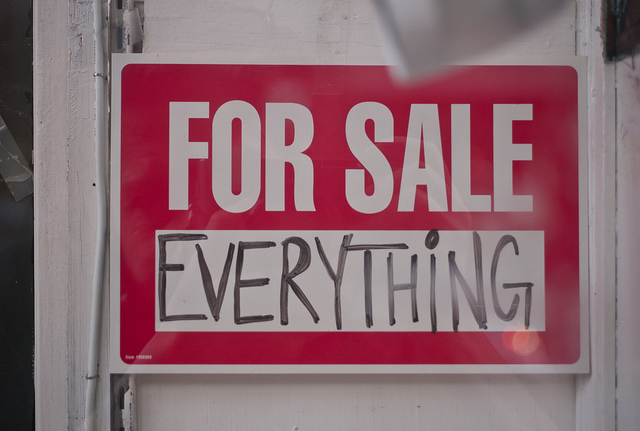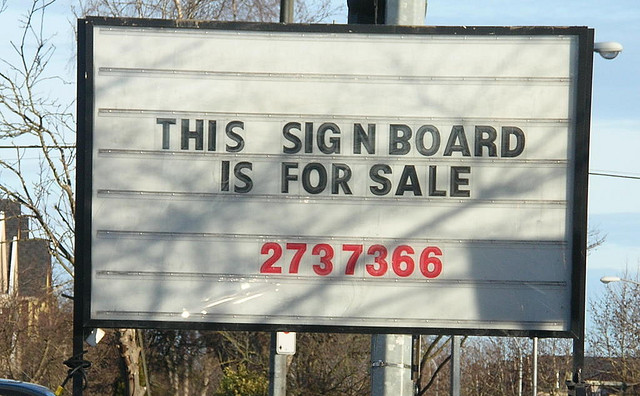Stop Thinking of Your Rate as a Number
Do you struggle to figure out how much you should charge for projects? Whether you should agree to a request for a discount? If you should raise your rates?
I have a trick to help make negotiating over money easier: stop thinking of your rate as a number.
Most people find it hard to negotiate over money because they see the figures as just numbers.
$1,000 sounds great out of context. It’s a good amount of money and, if pressed, I can probably find something to do with it.
But context gives that $1,000 meaning. And understanding what something means makes it much, much easier to negotiate.
Unfortunately, we tend to treat our rates the same way we do that $1,000 out of context; it sounds good, maybe it’s even industry standard, and we know we can use the money once we get it. When pressed to negotiate over our rate, though, it’s difficult because we don’t have enough information about what the rate represents to us or to the client.
Here’s an exercise you can do to uncover the meaning behind your rate and negotiate prices more effectively.
Ask “Why?”
As you know, it’s easier to negotiate when you understand your interests in the negotiation. Interests are the reasons why you want what you want.
When you negotiate using positions, “I want $1000,” the tools you have available in the negotiation are limited. The other person can say “yes” or “no” and then you can decide if you want to “yes” or “no” to their counter-offer. But that’s it.
When you negotiate using interests, you understand the reasons why each side wants what they want. With that understanding you have far more tools available than “yes” and “no.” You can craft a deal that satisfies the whys each side has, even though it might look different than what was originally proposed.
When establishing your rate or pricing out a project, spend some time asking yourself why you’ve chosen that rate. Do more than simply answer “because I think that’s how much it should cost.” Give your rate meaning by better understanding what it represents to you and what it means for your client.
Why are you pricing this project at $1,000?
Because I think it will take about 8 hours of initial work and 2 hours of revisions. $1,000 will give me a good hourly rate even if we go over my estimate by an hour or two.
Why is that a good hourly rate?
Because I’ve figured out how much I need to make, on average, every day to cover my expenses, assuming I bill at least four hours a day. I can spend up to 13 hours on this project and still meet that minimum.
Why do you think $1,000 is a fair price for your client to pay?
Because I’ve asked them how they’re going to use my work and I know that they’ll be able to use my work for XX months and that they’ll recoup their costs after X sales/XX click-throughs/X uses.
Just by answering these three questions you now have a much better understanding of what that $1,000 means and how it represents value to both sides.
When negotiating, instead of sticking out your thumb and trying to decide whether a counter-offer sounds ok, you can compare counter-offers to your interests. Do they fulfill those interests? If so, maybe they’re acceptable. If not, instead of just saying, “No, I can’t do that,” you have the knowledge to much more persuasively say, “No, I can’t do that because….”
If you do this exercise and realize you can’t answer one of your “why” questions, you know you have more research to do before you’re ready to negotiate.
You don’t have to stop with the why questions I posed here, either. The great thing about “why,” which you know if you’ve ever met a three year old, is that you can keep asking “why” to dig deeper and better understand just about any topic.
One “why” question might have many answers; don’t be afraid to do some exploring to see what you can find.
Money is great but in and of itself it doesn’t do a whole lot. Money is valuable because it allows us to do things we want or need to do. Understanding the value of your rate to you and your clients will make it easier to negotiate prices.
Categories: Negotiation Strategy






I think this is a great concept, it’s so easy just to focus on the numbers without really thinking why you’re charging a certain amount and why the client should pay that amount.
When I first started freelancing, I was always far to short sighted when negotiating project costs. I would think £2000 is good for me right now, ignoring the fact that it might of been a large project, which will take a long period of time and cause my hourly rate to actually be a lot less than desired. I also didn’t think of the project costs from the client perspective where I think it’s quite obvious when the client is getting a very good deal for something.
I think the other point you touched on which is important too, is some planning around what you want to earn. I never used to set a target for what I needed to earn each year and whilst this shouldn’t be the main driver for setting your prices, it can help put things into perspective. It will highlight what you need to be charging for your ‘average’ projects to reach that earnings target.